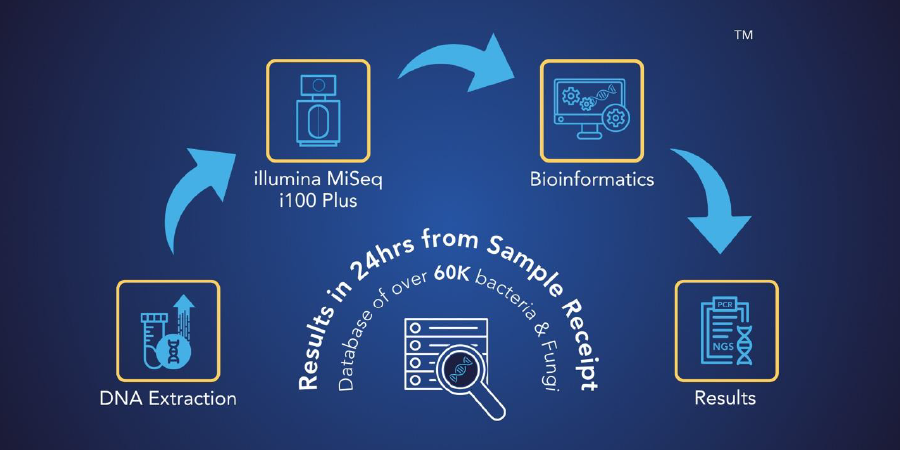Antimicrobial resistance (AMR) is a complex, multifaceted problem with epidemiological, therapeutic, and preventive implications. It has been defined as changes that occur in bacteria, viruses, fungi, and parasites over time and cause them to no longer respond to antimicrobial treatment.1 As a result, infections become harder to treat, and there is an increased risk of disease spread, severe morbidity, and mortality.1 Due to the alarming spread of AMR and its severe consequences, the World Health Organization (WHO) has named it one of the top 10 global public health threats.1
AMR History and Today
 Antimicrobial resistance has existed as a natural phenomenon long before the introduction of antimicrobial drugs. Researchers have discovered that many antimicrobial resistance genes originated in environmental bacteria thousands of years ago.2 However, antibiotic overuse and misuse are the most important drivers of antimicrobial resistance, which has reached alarming levels across communities.1
Antimicrobial resistance has existed as a natural phenomenon long before the introduction of antimicrobial drugs. Researchers have discovered that many antimicrobial resistance genes originated in environmental bacteria thousands of years ago.2 However, antibiotic overuse and misuse are the most important drivers of antimicrobial resistance, which has reached alarming levels across communities.1
Notably, the mechanisms involved in antimicrobial resistance are generally naturally present in pathogens and have additional functions. For example, P. aeruginosa typically expresses the OprD protein (also called D2 porin), which is involved in the passive uptake of amino acids across the outer bacterial membrane but forms pores that are also permeable to carbapenems.3 The loss of this protein dramatically increases imipenem’s minimal inhibitory concentration (MIC) in P. aeruginosa, leading to antimicrobial resistance.
Strategies to Combat AMR
Due to antimicrobial resistance’s severe public health consequences, limiting its spread is a priority for researchers and public health authorities. Diagnostic testing of pathogens and their resistance patterns, rational antibiotic prescription, and use, and promoting behavioral changes in patients are the most important strategies to combat antimicrobial resistance. Accordingly, the Centers for Disease Control and Prevention (CDC) have endorsed the rational and broad use of tests detecting pathogens to avoid unnecessary or broad-spectrum antibiotic therapy.4
Genetic Testing for a Reliable Microbiological Diagnosis
Genetic testing has proven to be a valuable tool to promote the rational use of antimicrobial drugs and to limit antimicrobial resistance. There are multiple reasons for and levels of antimicrobial resistance. In some microorganisms, antimicrobial-resistant genes identified by genetic testing can be used as a reliable indicator of the presence or absence of antimicrobial resistance.
Microorganisms for which antimicrobial resistance can reliably be identified or ruled out using genetic testing include methicillin-resistant bacteria Staphylococcus aureus (MRSA), extended spectrum beta-lactamase (ESBL)-producing bacteria, carbapenemase-producing organisms (CPOs), and vancomycin-resistant Enterococcus (VRE). In these cases, the detection of antibiotic-resistance genes can provide sufficient molecular biological information to enable rational therapeutic decisions and prevent ineffective therapy. Thus, genetic testing is a useful complementary tool for diagnosing high-risk infections and detecting drug resistant infections.
However, for other microorganisms or antibiotic resistance patterns, the microorganism may prove to be resistant even if a polymerase chain reaction (PCR) does not identify a causative gene. In such cases, a negative result in genetic testing would not rule out resistance via other possible mechanisms. An example is antimicrobial resistance to macrolides because not all genes underlying macrolide resistance have been definitively identified.
MicroGenDX Genetic Testing for Reliable and Prompt Identification of Antimicrobial Resistance
The MicroGenDX diagnostic platform enables the simultaneous identification of various microorganisms, including in the presence of antibiotics and the detection of antimicrobial resistance. We routinely test for the presence of up to 17 antibiotic-resistance genes for all major classes of antibiotics.
In addition, our algorithm presents antimicrobials for consideration for all detected species based on the Sanford and Johns Hopkins Guides, facilitating provider-driven specific antimicrobial treatment and the de-escalation of antibiotic therapy while minimizing infection recurrence. Modifying antimicrobial therapy based on genetic testing findings may help alleviate the risk of antimicrobial resistance associated with empirical treatment and reduce treatment duration and costs.
MicroGenDX’s Expertise in Antimicrobial Resistance Testing
MicroGenDX’s modern molecular diagnostic laboratory has extensive, over 12-year experience in pathogen detection and antimicrobial resistance determination. Our laboratory is CAP-accredited and CLIA-licensed and has established research partnerships with the United States Food and Drug Administration (FDA), CDC, and National Aeronautics and Space Administration (NASA).
MicroGenDX’s proprietary bioinformatic system delivers highly sensitive, specific, and timely results on antibiotic resistance and suggestions for antimicrobial therapy. These findings may help to improve antibiotic stewardship, reduce costs, and improve patient satisfaction and outcomes.
To learn more about MicroGenDX’s state-of-the-art antimicrobial resistance testing platform and discuss your project with our expert team, visit microgendx.com to contact us today.
Literature Sources
- World Health Organization (WHO). Antimicrobial resistance. Available online at: Antimicrobial resistance. Last modified: November 17, 2021.
- Perry J, Waglechner N, Wright G. The prehistory of antibiotic resistance. Cold Spring Harb Perspect Med. 2016;6(6):a025197. doi: 10.1101/cshperspect.a025197.
- Li H, Luo YF, Williams BJ, Blackwell TS, Xie CM. Structure and function of OprD protein in Pseudomonas aeruginosa: from antibiotic resistance to novel therapies. Int J Med Microbiol. 2012;302(2):63-68. doi: 10.1016/j.ijmm.2011.10.001.
- Messacar K, Parker SK, Todd JK, Dominguez SR. Implementation of rapid molecular infectious disease diagnostics: the role of diagnostic and antimicrobial stewardship. J Clin Microbiol. 2017;55(3):715-723. doi: 10.1128/JCM.02264-16.


